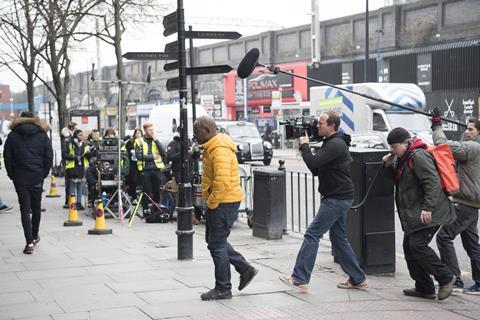Film & TV Charity and WFTV speak up for freelancers

Two leading screen sector organisations have issued a rallying cry for support for the industry’s most vulnerable people.
The Film & TV Charity has submitted to the DCMS Committee’s Covid-19 creative industries inquiry outlining the “strategic risks to industry diversity and mental health”, while Women in Film & TV (WFTV) has launched a campaign to highlight the plight of the huge numbers of out-of-work freelancers.
The former’s 13-page submission flagged four issues for the UK’s film and TV workforce during and after Covid-19: poor data, freelancers missing out on support, mental wellbeing and the “strategic risks to industry diversity”.
The charity said under-represented groups are “less likely to have the financial resilience to weather a long period of joblessness”, while Covid-19 has also disproportionately impacted BAME communities.
It also cited the “severity of the mental health impacts of Covid-19” and the disproportionate impact this is likely to have on individuals identifying as BAME, disabled or LGBTQ+.
“The mental health of these individuals was already under threat before and may suffer more because of it,” said the report.
“The death of George Floyd and the current civil rights movement is adding to the significant mental health borne by the black community in particular.”
According to the submission, the film and TV sector lags behind the national average in all areas of workplace diversity, with 10% non-white compared to 12% in the UK economy, and 10% with a ‘limiting health problem or disability’, compared to 14% nationwide.
The Film & TV Charity also flagged data problems, stating that the government’s ONS data “significantly under-reports the number of freelancers” working in our industries.
This is due to the ONS measuring freelancers who work in a specified ‘reference week’, which ignores the project-based nature of film and TV production, while freelancers engaged via short-term PAYE contracts are technically classified as employed.
“This has caused difficulty gauging the impact of the pandemic on the industry, and undoubtedly contributed to workers in film and TV being dramatically under-served by the government’s support schemes,” added the submission.
The charity estimates that three-quarters of eligible film and TV workers have fallen through the cracks, making a mockery of chancellor Rishi Sunak’s proclamation when he launched the schemes that only 5% would miss out.
Women in Film and TV
Meanwhile, WFTV has launched a campaign to highlight the plight of these freelancers.
To tie in with last week’s National Freelancers Day, the organisation has been putting out daily social media posts sharing the tragic stories of some of these self-employed workers missing out.
“It’s now nearly four months without a job and without pay,” reads one.
“I’m five months pregnant and facing a further six months leave as of October that I should be saving for now, instead I am spending the last of the savings I do have”.
Other experienced freelancers speak of “mental anguish” and “fears over no work for the foreseeable future”.
The Coronavirus Job Retention Scheme closed to new entrants on 10 June and is unlikely to make any changes to its eligibility criteria.




























2 Readers' comments